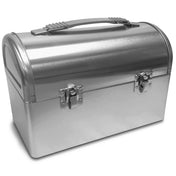Online food delivery companies sprouting up in leading cities to cater for hungry mid-day office workers
A click of a smartphone button has revolutionized the one-hour lunch break and turned those snaking lines of customers outside city restaurants into a distant memory.
With the rise of online food delivery companies, customers are now surrounded by an array of options that have triggered a boom in the online-to offline, or O2O, business.
Even a high-profile home-cooking service, Shaofanfan, has moved into the marketplace to grab a lucrative slice of the pie by morphing into Taste Bud.
"Compared to the home-cooking service, making and delivering lunch boxes will place us in a more sizeable market," Zhang Zhijian, who founded Shaofanfan in December 2014 before it was transformed into Taste Bud last month, said
"Even though Taste Bud covers a small area in Shanghai and the profit for each lunch box is limited, we can receive 1,000 orders every day. And that amount will increase in future," he added without disclosing detailed financial figures.
When the company was known as Shaofanfan, it could call on a team of 700 chiefs to prepare meals for its home-cooking service.
Now, they are putting together lunch boxes for Shanghai's office workers.
Yet the decision to move into an already crowded business arena is not surprising since the sector has expanded rapidly in the past few years.
By simply downloading a mobile app on a smartphone, hungry customers in the city's central business area can buy a lunch box for no more than 40 yuan ($6.3).
Beverages such as sparkling water or ginger ale are extra.
Naturally, competition is fierce for companies such as Taste Bud, which is a newcomer to the lunch box game.
"If it is to survive in the market, the company has to provide more refined services which are tailor-made to consumers," Sun Mengzi, a senior analyst from market consultancy Analysys International, said.
That is exactly what Xinwei Cook is trying to do after launching a website to provide semi-finished Western-style food and delivery services last year.
In March 2014, the company received 3 million yuan in angel funding from Morningside Ventures in Hong Kong. Then in early September, it received a 10 million yuan Pre-A round financing from Capital Today in Shanghai and Morningside Ventures .
At that point, Xinwei Cook started making and delivering upmarket lunch boxes for professionals working in central parts of Shanghai.
The menu is a combination of Western and Chinese cuisines, while the food goes through a rapid cooling technique once it has been cooked to keep it fresh.
On delivery, customers simply pop their lunch boxes into the microwave to heat them up.
Xinwei Cook has one fulltime chef in charge of cooking, and two expatriate chefs who work as supervisors, selecting ingredients, studying recipes and liaising with suppliers from five-star-rated hotels.
Every set lunch is priced at about 30 yuan and can be delivered within 35 minutes. According to the company it can receive up to 200 orders a day, although it declined to disclose detailed financial figures.
"We have introduced the set lunch service in order to find another breakthrough in this convenient and high-frequency business," Ge Yineng, founder and CEO of Xinwei Cook, said.
"While our semi-finished food production and delivery service will continue, set lunches will be our focus in the upcoming months."
For Luo Xin, a public relations manager in Shanghai and a loyal Xinwei Cook customer, that is music to her ears.
Luo was enticed by the high quality food and the company's speedy delivery service.
"I was attracted by the packaging of the lunch boxes at the very beginning," she admitted. "They all look very simple and pure.
"The food they provide is also light, which is very much in line with the demand of office ladies."
A kaleidoscope of lunch box cuisines is also on offer in Beijing. Liu Ran quit her job at an Internet company to start her own business called VG in May. The food delivery company provides light meals for office workers.
"Lunch used to be a pain in the neck for me," she said. "The choices around the office were limited. But more importantly, the food was high in calories. It contained too much oil and seasoning.
"I believe many young women of my age feel the same as we all want to keep fit and healthy. If this is a trouble for people, then it is also a business opportunity," she added.
Before VG started, Liu tried more than 300 kinds of different lunch box meals to find the ideal blend for her customers.
Her team now includes chefs from five-star hotels and graduates majoring in nutrition from China Agricultural University.
VG also has more than 10,000 followers on WeChat, most of whom order their lunch from the website on a regular basis.
"We have improved our central kitchen in the hope of expanding our services to Zhongguancun and Wangjing areas (in the capital)," Liu said. "Even though we provide only light meals, we are quite confident about our growth prospects."
Cai Jintao is just as bullish about the future. He founded Chulaichuwang.com, another O2O service provider, in 2011 with the usual set lunch formula for officer workers in central Beijing.
But he has since moved into fresh fruit, juices, cakes and even the cosmetics sector.
"Selling set lunches was just the beginning. Before I started this company, I studied the market," Cai said.
"About 48 million people order a set lunch every day with office workers aged between 25 and 35 making up the majority of customers.
"Apart from lunches, they will need other services," he added. "By that time, we can be their (first) choice as they are quite loyal to our brand. We are now no longer a website selling lunch boxes, but rather a convenience store on the cloud."
So far, Chulaichuwang has extended its reach to Zhongguancun and Wangjing areas. The company has also opened up operations in Shenzhen and Shanghai.
This year, sales revenue will exceed 50 million yuan and top 200 million yuan by 2016, according to Cai.
"O2O is not about rolling out information platforms," he said. "The core of O2O services is addressing consumers' demands. As long as the company can meet those demands, we will grow."
Original article by Shi Jing appeared in China Daily.
Photo by Svitlana / Adobe






